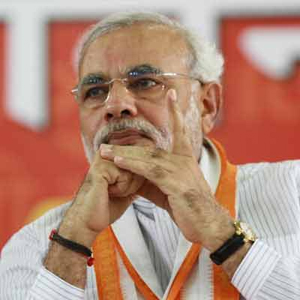Kolkata, Mar 1: The Calcutta High Court has ruled that it is not mandatory for foreigners to produce a valid passport and its particulars for processing of application for grant of Indian citizenship if he is able to satisfy the appropriate authorities the reasons for non-availability of the document.
Justice Sabysachi Bhattacharya passed the order while disposing off a petition by granting the petitioner liberty to file an application before the authority "as contemplated in Rule 11 of the Citizenship Rules 2009, upon furnishing explanation as to the non-availability of the passport".
Bismillah Khan had filed the petition saying he was being denied the citizenship of India because of his inability to file an application under Section 5 (1) (c) of the Citizenship Act, 1955, apparently due to the mandatory requirement of furnishing a copy of the passport for such application.
The petitioner's counsel submitted that Khan was a Pakhtoon citizen and due to political turmoil in the said state, which subsequently merged partially into Afghanistan and partially into Pakistan, he, as a five-year old, had to migrate to India with his father in 1973.
Under such circumstances, the petitioner could not have any opportunity of having a valid passport, since they were refugees under distress, the counsel said.
The petitioner had previously approached a coordinate Bench of the court, wherein a single judge, passed an order on July 25, 2018, directing him to comply with the formalities required, as communicated by the secretary to the Government of India to the Secretary to the Government of West Bengal (Home), vide a letter dated December 7, 2017.
The court had then also given liberty to the petitioner to apply afresh before the appropriate authority under Section 5(1)(c) of the 1955 Act, having complied with all the formalities.
The petitioner then moved Bhattacharya's court submitting that a complete application as directed by the Coordinate Bench cannot be possibly filed by his client due to the mandatory requirement of uploading a copy of his passport, which the petitioner does not have due to reasons beyond his control.
The counsel said Khan is married to an Indian citizen, has a daughter and living in India for close to half a century.
The counsel for the union of India submitted that in view of no application having been filed by the petitioner, there is no scope of granting such proposed application at the present juncture for the Union.
The counsel argued that it is mandatory to file an application in Form III for the application of the petitioner under Section 5(1)(c) of the Act to be considered at all.
In view of the petitioner not complying with the mandatory requirement of submitting a copy of his passport, the state government cannot, under the law, forward such application to the union government.
After hearing all sides, Justice Bhattacharya said although the rule "contemplates that an application shall not be entertained unless the application is made in Form III, such provision ipso facto does not make the availability of a passport a mandatory requirement".
"..the Form given with the Rules or the Rules themselves cannot override the provision of the statute itself, under which the said Rules are framed, which does not stipulate such a mandate on the applicants for citizenship under Section 5 (1)(c) of the 1955 Act mandatorily to carry a passport".
The court said although such provision is included in the Form, which has to be complied with by the applicant, "it is nowhere indicated in such Form that all the relevant particulars, including the particulars regarding passport of the petitioner have to be furnished mandatorily, along with a copy of a valid foreign passport, even in the event the petitioner, for valid reasons, is not in a position to produce such passport".
Justice Bhattacharya ruled that under such circumstances, it cannot be held that the provision of producing a passport and its particulars is mandatory in nature and there has to be a relaxation in such requirement "in case the petitioner is able to satisfy the appropriate authorities the reasons for non- availability of such passport".
"Unless such a leeway is given to the applicants, genuine persons who otherwise have all the formal documents indicating that they have been residing in India for a long time and have married a resident of India would also be unable to apply for Indian Citizenship despite having lived their entire lives and contributed to the economy and diverse culture of this country."
He said such a scenario would be contradictory to the spirit of Article 14 of the Constitution of India.
"In such view of the matter, the requirement of having a passport has to be read as optional in Form III of the Citizenship Rules, 2009 and the authorities are deemed to have the power to relax such 6 requirement in the event the applicant satisfied the authorities for genuine reasons why the applicant is not in a position to produce such passport," the February 24 order said.
The court ruled that despite the provision of making applications online, a provision has to be made for persons who do not have all the particulars of their passport, which is read as optional, to file applications manually, which are to be treated as valid applications under Rule 5 of the Citizenship Rules, 2009.
The court also ordered that alternatively the necessary software be amended so that the online applications can be presented with or without passports, in the latter case furnishing detailed reasons as to non-furnishing of passports.
"Sanctioning of such forms, however, will be conditional upon the satisfaction of the relevant authorities about the reasons for the applicant not being able to produce her/his passport," the order said.






Comments
Add new comment